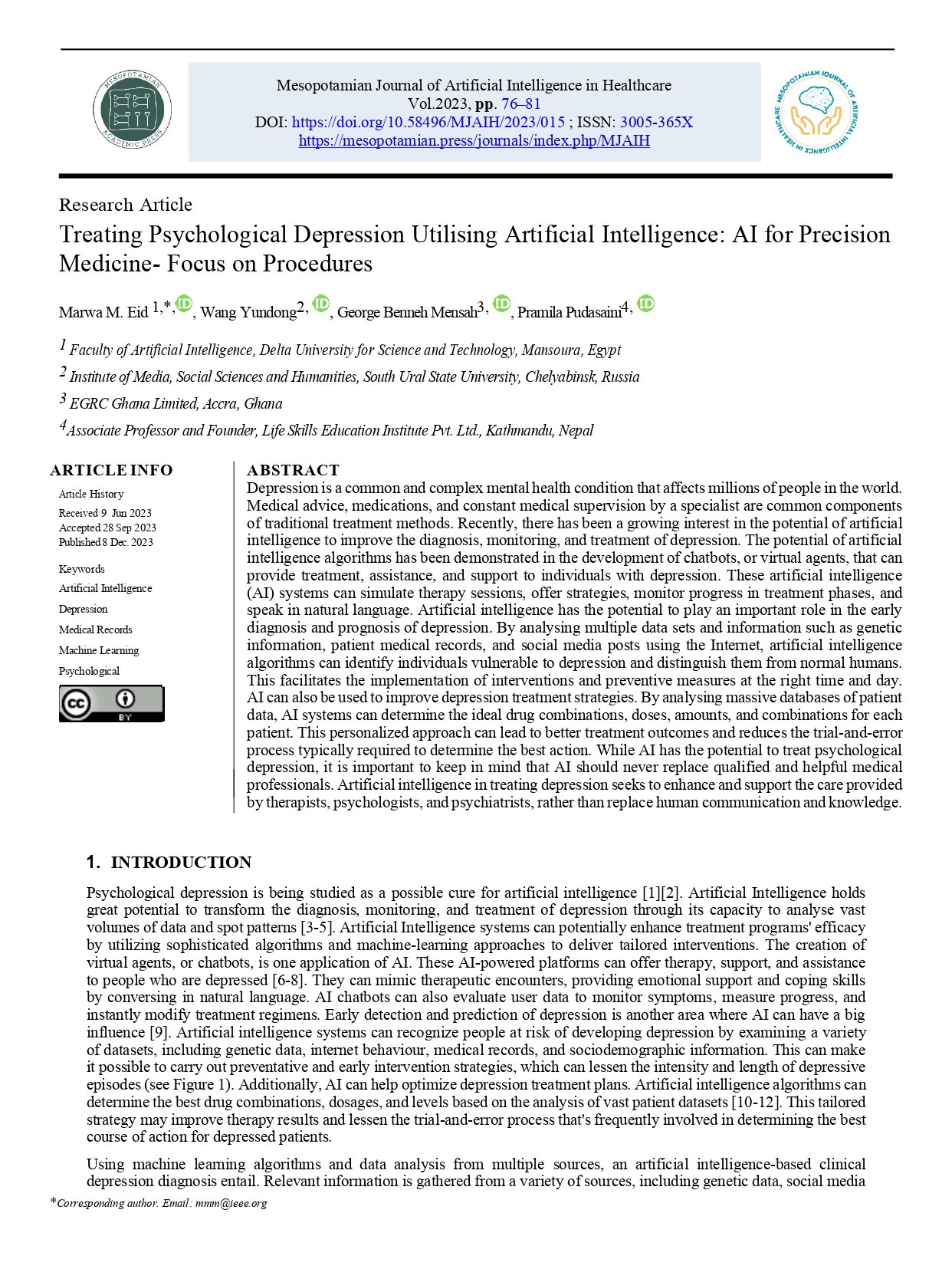Predicting Coronary Artery Disease Utilizing Support Vector Machines: Optimizing Predictive Model
Main Article Content
Abstract
In the medical field, specialists aspire through the use of artificial intelligence to obtain accuracy in the results and details of patients. Such as automatic detection and prediction of diseases and obtaining medical results by applying artificial intelligence techniques such as machine learning algorithms to clinical data. Therefore, because coronary artery disease (CAD) is one of the most prevalent types of diseases in the world and with the highest rate of injuries, one of the machine learning algorithms will be used in this research to diagnose this disease through artificial intelligence. Patient clinical factors were used, a data set of 303 people. The Support Vector Machine (SVM) algorithm is used and applied to the clinical factors of patients, which are 56 variables, as they are considered one of the most important clinical factors that can be used to detect CAD. This algorithm is considered to have good predictive ability in medical clinical characteristics. The Support Vector Machine algorithm model, which was used in this research, provided the highest prediction accuracy of (96.7%), with an AUC value of (71.5%). This indicates the effectiveness of the SVM algorithm in classifying the clinical patient data set that was adopted in this research. After applying it to the research data set, the SVM algorithm showed its ability to classify and predict well. The accuracy of the algorithm model was (96.7%). This indicates that this algorithm can help cardiologists in different ways during their daily practices to predict coronary artery disease, which is one of the most common heart diseases.
Article Details
Issue
Section

This work is licensed under a Creative Commons Attribution 4.0 International License.
